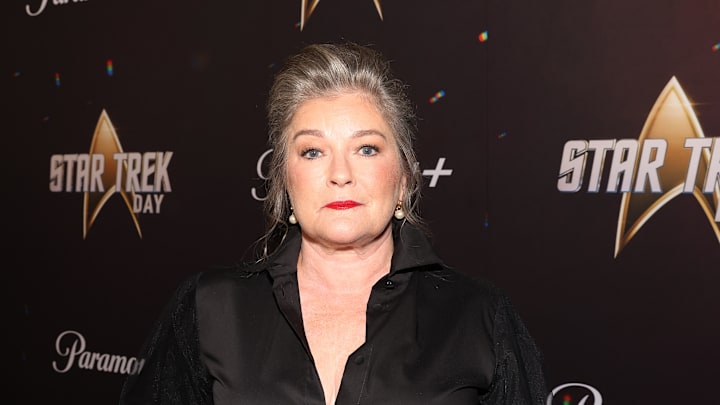Weight gain and loss can be a touchy subject for many people. Having someone pointing out your issues on the matter, be it one way or another, can be exhausting and dehumanizing. It's bad enough for a regular person to have to face such touchy conversations, but those in the world of films and movies have to handle so much more of it.
Even those attached to such vaunted, progressive franchises like Star Trek. Giant Freaking Robot pulled up an old article from the November 1995 issue of Star Trek Monthly (Issue #9), which highlighted how much the behind-the-scenes crew cared about the weight fluxation of their stars.
It's no surprise that the older Star Trek shows were often on shoestring budgets, resulting in a lot of stressful situations that may otherwise be avoided. One of those situations involved members of the cast becoming too small or too big for their costumes. As the attire the crew wore was often times single-body pieces, it was hard to get a good fit, and so any alterations would end up costing more money than the show would be able to afford.
This caused Star Trek costume designer Robert Blackman to tell the magazine (via Giant Freaking Robot) that trying to get stuff together for series lead Kate Mulgrew was difficult, as she apparently had a fast-burning metabolism. While the interview likely comes off as complimentary, it's far from it, as Robert Duncan McNeill and Garrett Wang would later explain on their Delta Flyers Podcast.
In the episode where they discuss the season four episode "Demon", the duo reveals that producers started writing fat-shaming comments into the script, while also having both McNeill and Wang wear girdles to help them fit into their outfits better.
For such a modern and forward-thinking series, they sure didn't always treat their employees the best. With far too many stories coming out over the years of how overworked and under-appreciated the cast members truly are. Thankfully, it seems everything has smoothed over in the years since the show ended, but we can't help but think of how much nonsense could have been avoided had everyone been a bit more respectful of the needs of those on set.
As for the more modern shows, none of these subjects seem to come up. It likely isn't something that would be tolerated by the core cast, nor would it go on for as long without so many people talking about it. Status is no longer a promise that your improper behavior will go undocumented. Now, voices like Sonequa Martin-Green are far more likely to speak up for the mistreatment of those on set, and that's a good thing.
